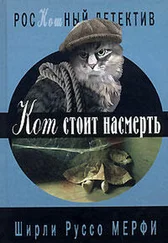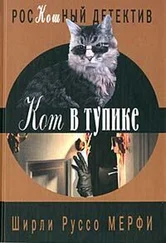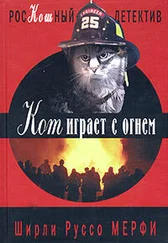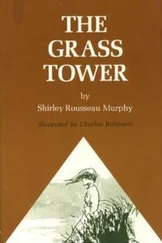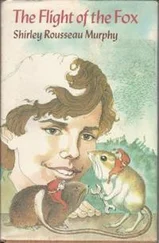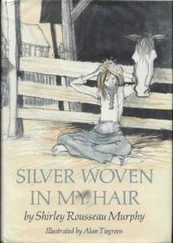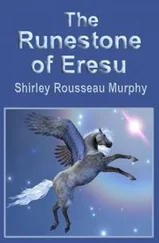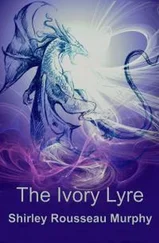“That is not necessary, or possible. However, you must make your own way here. No woman has ever come to Burgdeeth without a man.” He smiled dryly. “There are no unattached women here—except the slave women. And Venniver takes those as it pleases him. The guards—the guards get lonely sometimes.” He looked her up and down appraisingly. “I’m sure the guards will find you more palatable than slaves, my sister—if only because you are cleaner.”
She stared at Theel with fury and wondered why she had ever thought he would help her.
“There is only one set of rules in Burgdeeth. Venniver’s rules. If you are to stay here, you will mark those rules well.”
“I will mark them well,” she said stiffly, her whole being rebelling.
Her meeting with Theel left her distraught and unnerved. She guessed she had counted on his support more than she realized. Well, maybe Theel would change his superior attitude. All by Venniver’s rules, was it? And as for the guards, if they thought she was fair game, they had better think again. She wasn’t wasting her time on guards.
She did not go back to the storeroom, but went boldly out the front door of the Hall into the street and, holding her head high in spite of her bloodstained, mended tunic, walked the length of it, past guards, past slaves working at a stone wall. She surveyed the half-finished buildings coolly, as if no one at all turned to stare at her. There was not another woman in sight. It was strange that so many buildings were incomplete, their roofs still open to the sky, so few occupied by craftsmen and their families. She saw no children. She walked to the end of the cobbled street, to the open place that Dlos had said would one day be the town square. Now it was only a morass of mud and piles of timbers and stone. The long earthen mound behind it seemed to mark the end of Burgdeeth, for beyond that the plain began, broken only by the grove of trees to the left of the mound, where she could see a guard tower rising. She knew there was a pit on the other side of the mound where a bronze statue was being cast by slaves—by Skeelie’s brother Jerthon, Skeelie had told her with pride. A bronze statue that would be as tall as six men would stand one day in the center of the square. Venniver didn’t do things by half. She wanted suddenly to see it, but too many guards were watching her. She could not bring herself to walk that long way around the mound in the mud to where slaves were working and perhaps risk the guards’ challenge. She turned instead back toward the Hall.
As she turned, she saw Venniver himself come out of a side street with half a dozen guards and start in her direction. She felt exposed; her jaunty assurance left her, and she hurried along to an alley that joined the square and up between the buildings. She thought that Venniver watched her. He was a big man, who dwarfed the guards. Wide of shoulder, with curling black hair and beard and a strange litheness of step. His image burned in her mind long after she turned away. She thought of Theel’s arrogance, and smiled. Maybe she would show Theel a thing or two about how to gain acceptance in Burgdeeth.
She found her way back to the storeroom and went directly through to Dlos’s room, where she borrowed a small mirror from the old woman, and some perrisax soap. She studied Dlos appraisingly. “Dlos, I can’t wear this tunic, it—the bloodstains wouldn’t come out. It’s so patched from the sword tear, it . . . Do you have something that I could make into a dress?”
Dlos surveyed her in silence. At last she said, “I suppose I do. What sort of thing? Coarsespun, I imagine. Very plain. You’ll be working in the sculler, maybe serving in the Hall.” She opened a chest at the foot of her bed, removed several worn garments, and lifted out a faded coarsespun dress. “If you take this in a little, I think. . .
Tayba held it up. It was very ordinary, not at all what she had in mind. “This—this will be. . . .” She lifted her eyes to Dlos, waiting.
Dlos sighed. “All right. All right.” She rooted again and handed out a length of amber wool as soft as down. Tayba unfolded it and it ran like water through her hands.
She hugged Dlos quickly and fled before Dlos could change her mind.
Dlos bent to close the chest grumbling at Tayba’s departing figure, “You had best be careful, my girl.” But Tayba did not hear, nor would have heeded, her.
She found the scissors Skeelie kept in the storeroom and began to measure and lay out the fine wool. And late that night she sat peacefully sewing, as she watched Ram’s quiet sleep. He had grown much better. She rose several times to touch his cheek and cover Skeelie, who slept flung out every which way across her cot.
Much later she heard the wolves howl on the mountain. Ram stirred and muttered, rolled to face the window and reach out. She wanted to pull his hand back, tuck it under the covers out of harm’s way. But instead she drew the shutters closed, shivering. The wolves were not good for Ram. Why did he yearn for them so, even in sleep? She wished he had never heard of the wolf bell. Recalling the slinking jackals on Scar Mountain, Tayba saw their faces superimposed over the wolves’ faces and felt fear for Ram. Gredillon had been wrong—very wrong—to train him to the use of the bell and its dark powers. She was glad the bell was lost.
“You’d think,” she said to Skeelie the next day as they peeled vegetables in the sculler, “you’d think that Venniver—that he would just let us know we can stay. . . .”
“Why should he?” Skeelie countered, dumping peelings into a bucket for the chidrack. “The longer he waits, the more—you will be afraid of him and obedient to him when he does decide to speak to you.”
She stared at Skeelie.
“Oh, he’ll let you know, you needn’t worry. In his own good time.”
“How do you—how do you know what he’ll do?”
Skeelie looked at her oddly. The thin child was strung tight with intensity. “I know—because I hate him. My brother is Venniver’s slave. My people. . . . Ever since I was four, I’ve watched Jerthon slave for him, seen Jerthon beaten, felt Jerthon’s hate for him. I know Venniver very well.” Skeelie looked older than her twelve years; spoke with a hatred that was mature and cold. It made Tayba hesitate in what she planned—and yet, the slaves’ problems were not her problems.
And the slaves were strong, healthy people. Were Seers. Couldn’t they have found some way, in all these years, to escape Venniver if they had really tried? She looked at Skeelie and saw her face go closed suddenly, her eyes expressionless.
“How—how is it that he lets you go free, Skeelie?”
“I keep out of his way. He—he doesn’t see much of me.” She was peeling the roots so violently, Tayba was afraid she would cut herself. “When Venniver captured us, Dlos told him I was too little to be locked in the slave cell all day with no one to take care of me.”
“And he listened to her? But I would have thought—”
“He listened because once she saved his life. He—he had gone up into the mountains. He didn’t return. Dlos—knew where to look. She led three guards there. They found—found him trapped where a boulder had rolled across a cave. It took all three men to move it”
“But how did she . . .”
“No one . . . she said she had been up the plain picking herbs and heard the rumbling, that she—she thought she knew where it was. The guards said—I heard them talking once—that it must have been an earthquake. And that there were wolf tracks around the boulder—as if the wolves had come down tracking him. . . .”
Three old women bustled into the sculler with baskets of tervil and roots. Tayba and Skeelie stilled their talk, became absorbed in their vegetables.
Читать дальше
![Ширли Мерфи The Shattered Stone [calibre] обложка книги](/books/436059/shirli-merfi-the-shattered-stone-calibre-cover.webp)
